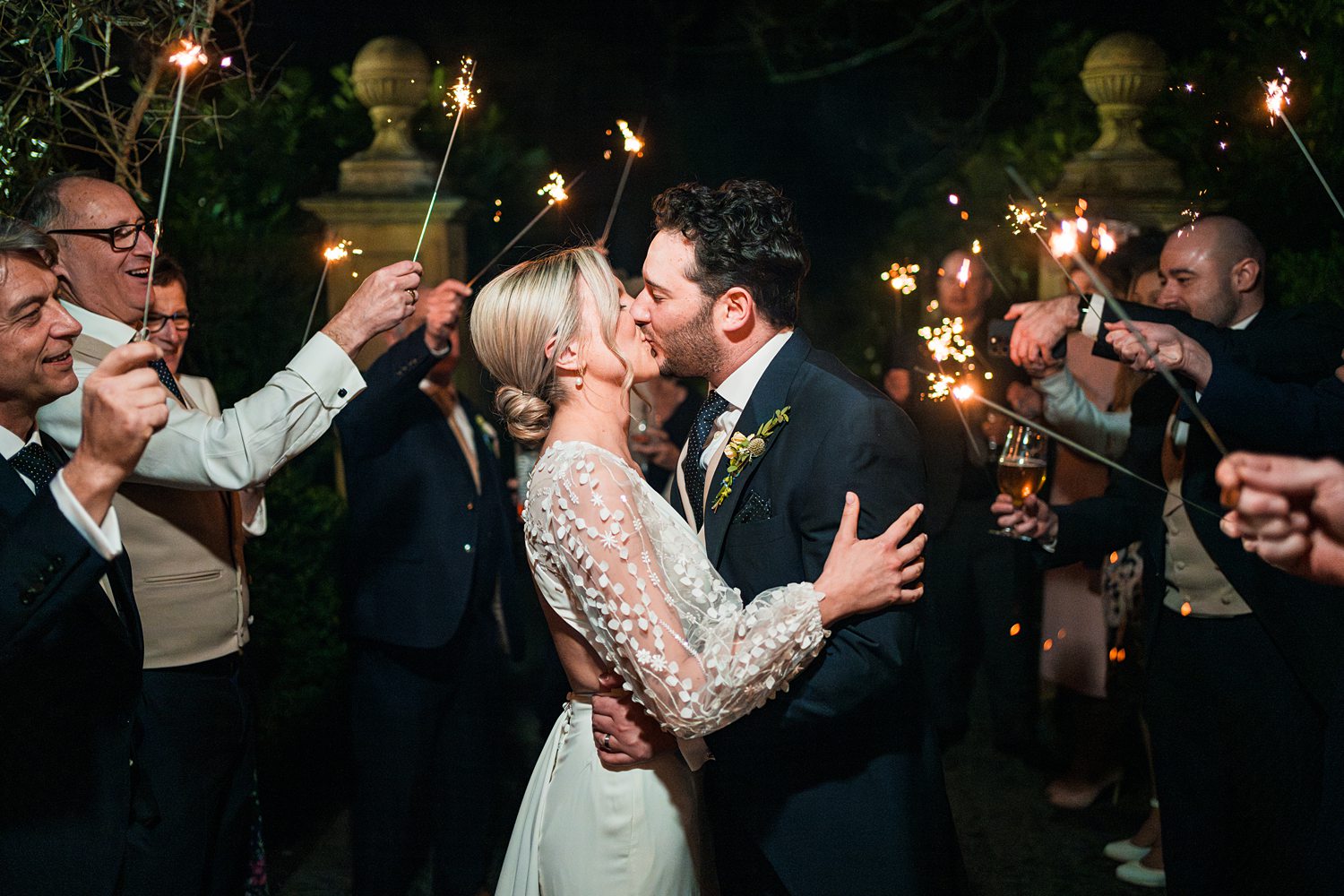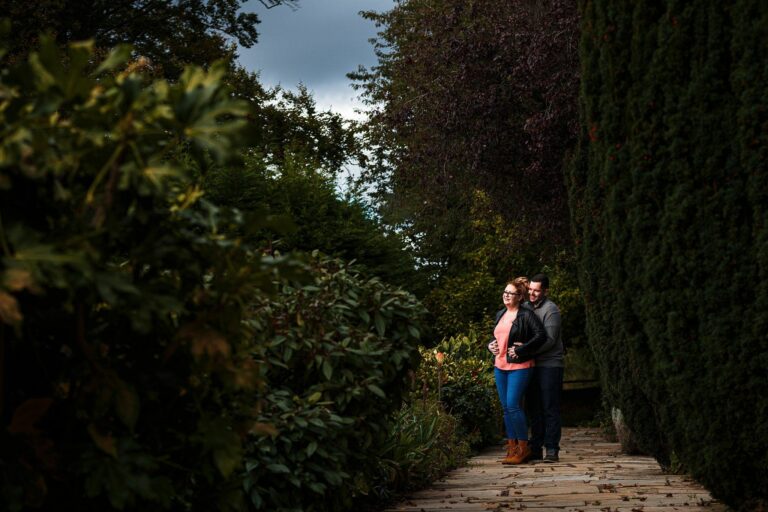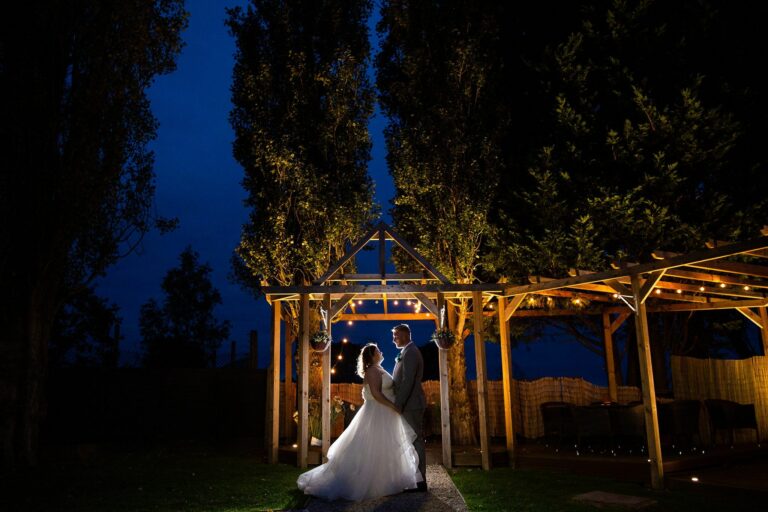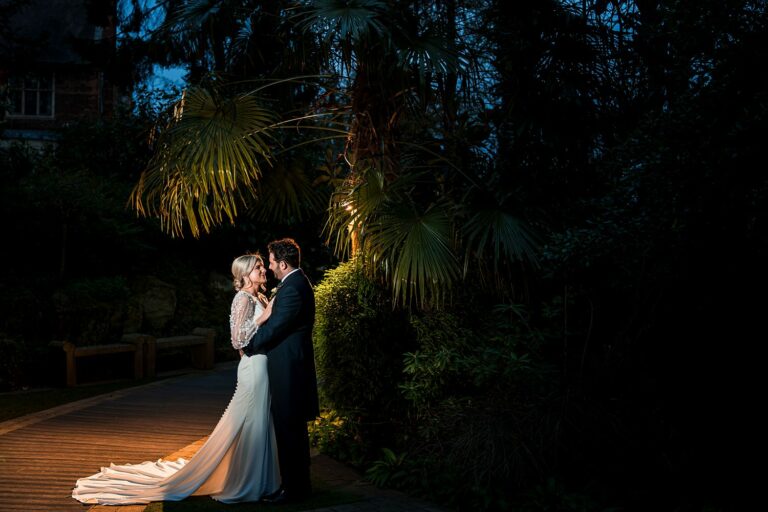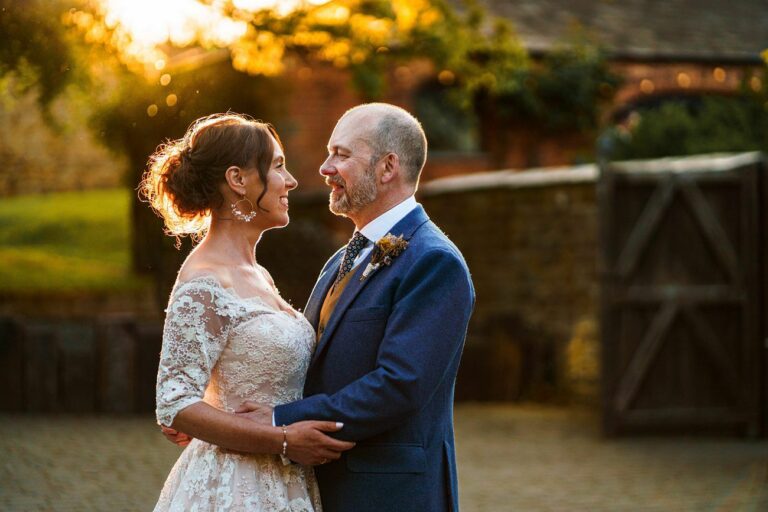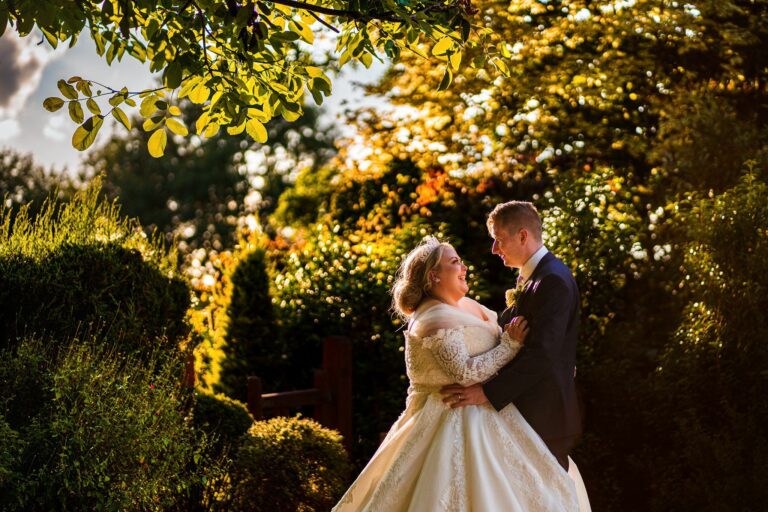How to Plan a Wedding – The Ultimate Guide
Your Dream Wedding Planning Guide
Embarking on the journey towards your ultimate wedding is an adventure filled with excitement, love, and a plethora of decisions. With this comprehensive wedding planning guide, you’ll be well-equipped to craft the perfect wedding that echoes your personal style and vision. Whether you aspire to orchestrate a dream wedding with grandeur or an intimate affair, this guide on how to plan a wedding is your trusted companion. Following our step-by-step timeline—sprinkled with indispensable tips and insider know-how—will empower you to plan a wedding that is as seamless as it is spectacular. Delight in every moment of the process and watch as your envisioned day unfolds into an enchanting celebration that marks the beginning of your lifetime together.
Embarking on Your Wedding Planning Journey
As you start planning for the most thrilling chapter of your life, it’s vital to embark on this journey with a clear vision and an organised mindset. The initiation of your wedding planning is an adventure that demands attention to detail and an understanding of the intricacies involved. Let’s dive into the elements that are essential for orchestrating the day of your dreams.
The Importance of a Realistic Timeline
Entering the planning process early in your planning stage is key to avoiding the frantic rush as your big day approaches. A realistic wedding planning timeline is critical to ensure you have enough time to plan each aspect meticulously. Generally, allocating about a year for the proceedings is considered ideal, cushioning you against deadlines and allowing for a more enjoyable experience as you curate the minutiae of your celebration.
Organisation: The Backbone of a Dream Wedding
Robust organisation serves as the backbone of your wedding plans, solidifying the foundation upon which your special day will unfold. It integrates the planning timeline into your daily life, ensuring that you remain on track with milestones and deadlines. By maintaining a systematic approach to your to-dos, you’ll have the fortitude to tackle decisions confidently and effectively—after all, each small step is a stride towards your ultimate wedding vision.
Including Your Significant Other in Planning
At the heart of your celebration is the union between yourself and your significant other—making it vital to include them early in your planning process. Collaborative planning not only unifies your vision but also intertwines your personal tastes, resulting in a wedding that resonates with both your stories. As you align your preferences and sculpt the ceremony and reception, you craft an affair that is uniquely yours, reflective of the partnership you’ve cultivated together.


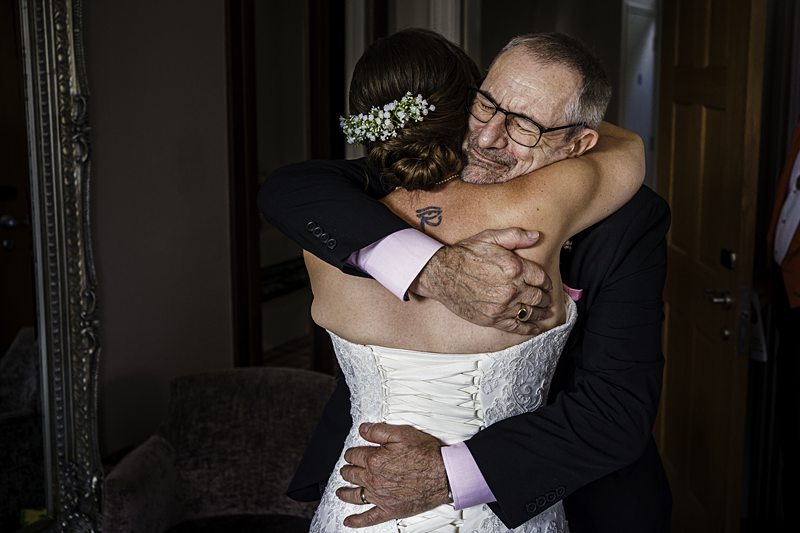



Deciphering Your Wedding Budget
Embarking on the thrilling journey of matrimonial bliss begins with decoding the intricacies of your wedding budget. Understanding how much you’re able to spend on your wedding forms the financial substrate upon which your nuptial dreams are built. The essence of sagacious wedding planning stems from a well-thought-out estimation of costs, which can include everything from the resplendent venue to the last rose petal scattered along the aisle.
Let’s delve into the essentials of planning your wedding budget, a comprehensive strategy that allows you to forecast expenses and prevent any unwelcome monetary surprises. Here is a glance at how to ensure your budget aligns harmoniously with your desires for the big day:
- Begin with the basics: Calculate your total available funds and establish clear priorities for major expenses such as the venue, attire, and vendors.
- Contemplate contributions: Hold candid discussions with family members or friends who are willing to help pay for the wedding and decide how their contributions will be allocated.
- Finer details: Account for hidden costs and smaller extras that are often overlooked, such as gratuities for service providers and postage for invitations.
Grasping the full scale of your financial situation from the outset of the wedding planning process will ultimately inform all your decisions and help you celebrate without the shadow of debt looming over your newlywed euphoria. Tread thoughtfully and plan generously, and you’ll pave the way for a day that isn’t just magical, but also financially sound.
Key Considerations When Choosing Your Wedding Venue
Embarking on your journey to unite in matrimony, the ambience of your celebrations will be largely influenced by the wedding venue you select. It’s not simply a backdrop; it is the stage on which you’ll exchange your vows and celebrate with those you hold dear. With the diverse range of options available for a wedding in the UK, here are key elements to weigh up as you plan this momentous occasion.
Factors to Consider for Your Ideal Venue
Choosing the right wedding venue requires a blend of pragmatism and imagination. To begin, consider the size of your guest list; you’ll need a space that comfortably hosts your attendees, creating an intimate yet spacious atmosphere. Next, reflect on the location: is it accessible for your guests? Does it hold significance to your relationship? Moreover, ponder the style and theme you envision—be it rustic, modern, or classic elegance—ensuring your venue radiates the desired ambience.
- Guest list capacity – ensures everyone you choose for your wedding party has space to celebrate.
- Location convenience – select a venue which guests can reach easily, reducing travel complexities.
- Style alignment with your vision – the venue should complement the aesthetics you’ve dreamt of.
- Budget considerations – ensure the costs align with your financial plan for the wedding.
Understanding Venue Accommodations
As you narrow down your choices and prepare to book a wedding venue, it’s crucial to delve into the specifics of their accommodations. Ask about the flexibility of room configurations, the availability of on-site catering, and sufficient parking for guests. Many couples today prioritise convenience for their attendees by selecting a wedding venue with accommodation. This not only alleviates the need for post-celebration travel but also extends the joyous gathering over a weekend, providing more time to make cherished memories.
- Inquire about guest capacity and layout options.
- Check if on-site or nearby accommodation is available to facilitate a smoother experience for travelling guests.
- Secure a venue that offers the facilities required for your wedding—dance floors, audio equipment, and scenic photo spots are often important considerations.
How to Plan a Wedding: Crafting a Vision Together
Embarking on wedding planning is akin to painting on a blank canvas. It’s the moment where you and your partner can jointly sketch out the masterpiece that’ll become your dream wedding. Your combined imaginations become the palette for creating your dream wedding, with every hue and stroke representing the unique aspects of your wedding. Whether you’re utilising a wedding planning guide or charting your own course, the key is to start with a shared vision that encapsulates both of your desires and dreams.
Begin by setting aside time to explore and discuss the broad strokes of what you both envision. These conversations are the cornerstone of wedding planning, allowing you to harmoniously plan your wedding and ensure that every decision reflects your collective vision. As you delve into the details, consider these fundamental elements of your wedding:
- The theme that sets the mood and tells your story.
- A colour scheme that harmonises with your theme and creates visual synergy.
- The overarching style, whether it’s classic, modern, rustic, or something uniquely yours.
Infuse these elements into every aspect of your wedding, from the invitations to the decorations. By doing so, every component becomes a thread in the fabric of your celebration, weaving together to form the tapestry of your special day. Remember, the process of wedding planning is not just about adhering to a checklist; it’s about creating a day that resonates with the essence of your relationship. So, take each step together and joyfully plan the wedding that mirrors your collective dreams.






Selecting Your Perfect Wedding Attire
Shopping for your wedding is an enchanting experience that culminates in the discovery of your dream wedding attire. When you embark on the journey to find your ideal wedding dress, you should savour every moment as it is a cherished milestone in your wedding planning narrative.
Finding Your Dream Wedding Gown
Embarking on the quest for the quintessential wedding gown is a significant chapter in your wedding story. It involves exploring various silhouettes, fabrics, and designers, seeking that one gown that seems to have been crafted just for you. It’s not simply about finding a stunning dress; it’s about discovering the one that reflects your personality and makes you feel extraordinary. Do remember, your dream wedding gown may not be the first one you try on, so give yourself plenty of time and enjoy the process.
To assist in your search:
- Research current bridal trends but stay true to your unique style.
- Schedule appointments at reputable bridal boutiques known for their selection and service.
- Consider both ready-to-wear options and the more personalised route of having a gown custom-made.
Including the Wedding Party in the Style Discussion
Your wedding party plays a crucial role in your celebration, and including them in the style discussion is key to ensuring a cohesive aesthetic. When addressing wedding attire for your bridesmaids, groomsmen, or attendants, consider the theme of your wedding and the comfort of your party members.
Tips for harmonising style choices:
- Hold an open conversation about dress styles, colours, and preferences with your party.
- Look for silhouettes that flatter various body shapes and types.
- Keep in mind everyone’s budget and possibly propose a range of choices within a particular style or colour palette.
Creating a Wedding Planning Checklist
Embarking on the joyful journey of matrimonial preparation, a well-structured wedding planning checklist becomes your roadmap to navigating the myriad of tasks that will lead to your big day. Diligently noting down each item on your wedding checklist ensures no detail is missed and helps prioritise your actions as your celebration approaches.
Prioritising Tasks Leading up to the Big Day
Your wedding planning checklist should reflect all tasks on the wedding planning agenda in order of priority, letting you focus on what is most urgent as time progresses. Begin by listing the larger, more impactful decisions and bookings, such as the venue and caterers, before moving on to finer points like table arrangements and bridal party gifts.
- Selecting and booking the venue
- Narrowing down and securing caterers, photographers, and other key vendors
- Deciding on the wedding attire for you and your wedding party
- Finalising the guest list and sending out invitations
- Planning the honeymoon
- Confirming transportation for your wedding day
Managing the Week Before Your Wedding with Ease
As the week before your wedding draws near, having your wedding checklist close to hand ensures a smoother final countdown. This crucial week is about finalising the details, confirming times with vendors and venues, and rehearsing for the ceremony—essentially, checking off the last tasks on your wedding checklist.
- Verify the final headcount for caterers and venues
- Reconfirm details with all contractors and suppliers
- Arrange for wedding attire collection and final fittings
- Finalise seating plans and place cards
- Pack for the honeymoon
- Enjoy your stag or hen party with peace of mind
Implementing a wedding planning checklist will not only keep you organised but will also imbue a sense of achievement as you visibly mark off tasks on the wedding planning list. When done right, your checklist is the companion that carries you, stress-free, to the altar.






Communicating with Wedding Vendors and Venues
Embarking on your wedding planning means you’ll be delving into conversations with various wedding vendors and suppliers, from the wedding venue to the wedding photographer. Clear, effective communication not only establishes a smooth planning process but also cements the foundations for a day that flawlessly mirrors your vision.
Building Relationships with Your Selected Vendors
Engaging with wedding planners and videographers on a personal level fosters a sense of collaboration. When you build proper relationships with your vendors, you’re not just hiring a service; you’re creating a partnership that will bring your dream wedding to life. They become invested in making your day special, often going above and beyond to meet your requirements and suggest enhancements from their professional experience.
- Approach each meeting with clarity and openness about your expectations.
- Demonstrate appreciation for their expertise and advice.
- Stay in regular communication for updates and reassurances.
Navigating Contracts and Agreements
As important as it is to build relationships, it is equally paramount that you navigate contracts with a meticulous eye. You want to ensure your big day is safeguarded against unforeseen events, which is where wedding insurance can serve as a vital safety net. Reading and understanding the terms, conditions, and cancellation policies helps prevent any misunderstandings down the line, so you can enjoy your nuptials with peace of mind.
- Review contracts thoroughly, asking questions if anything is unclear.
- Keep a documented record of all agreements and communications.
- Confirm your wedding insurance covers key aspects of your contracts.
Incorporating Personal Touches into Your Wedding Day
Your wedding day symbolises the start of a unique journey, and infusing personal touches can transform your ceremony into the perfect wedding that resonates with both your stories. Remember, it’s these intimate additions that will render your celebration more memorable and heartfelt for everyone involved. Below are suggestions on how to seamlessly weave aspects of your personality into each aspect of wedding planning, elevating your special day into a beautifully curated experience for you and your guests.
- Customise your wedding day with keepsakes or heirlooms that have been passed down through generations to honour family history.
- Create a playlist filled with music that has been significant throughout your relationship, ensuring every note played is a reflection of your bond.
- Design beautiful wedding décor that tells your story, from table settings that feature locations you’ve travelled to together, to a cake topper that’s a nod to a shared hobby or passion.
- Include loved ones in the ceremony—perhaps through readings, performances, or by asking them to contribute something they’ve created, making it an intimate gathering.
- Incorporate local flavours and delicacies into the menu, adding another layer of personal touches that spotlight your heritage or favourite shared meals.
- Draft your own vows, articulating the journey you’ve embarked on and the future you envision, highlighting the commitment you’re making.
By personalising your special day with these elements, you make it exemplary of a perfect wedding—one that cherishes the past, celebrates the present, and toasts to the future. So celebrate your love by stamping your day with these meaningful details, ensuring that every facet of your celebration is an echo of your unique love story and collective aspirations.
Designing Your Wedding Invitations and Stationery
Your wedding invitations and stationery serve as the heralds of your much-anticipated day, setting the stage for a ceremony that reflects your personal style and the cohesive wedding theme you have envisioned. As such, the care taken in selecting these elements is paramount, ensuring they complement the aesthetic of your nuptial celebration.
Tips for a Cohesive Wedding Theme
Begin by considering the overarching style of your wedding. Is it classic, bohemian, or perhaps modern minimalist? Your invitations are the first impression your guests will receive, so aligning them with your cohesive wedding theme is crucial. From the typeface to the colour palette and paper texture, each aspect of your wedding stationery should resonate with the vibe of your ceremony and reception. Don’t forget, your stationery suite is not limited to wedding invitations; it often includes save-the-date cards, RSVP cards, and thank-you notes, all of which should reflect a consistent theme.
When to Send Out Your Invitations
Bearing in mind that your guests will need to reserve the date, wedding invitations should be sent out approximately 6 to 8 weeks prior to the ceremony. For a destination wedding or if you have many guests likely to travel from afar, consider sending them even earlier to ease travel arrangements. Ensure that the RSVP deadline gives you enough time to confirm the final headcount with your vendors and venue.
In today’s world, it’s also important to be mindful of inclusivity in your communication. Hence, when addressing invitations, consider using titles and descriptors that are respectful of gender-neutral wedding roles and preferences. This small gesture goes a long way in making all guests feel welcome and considered.

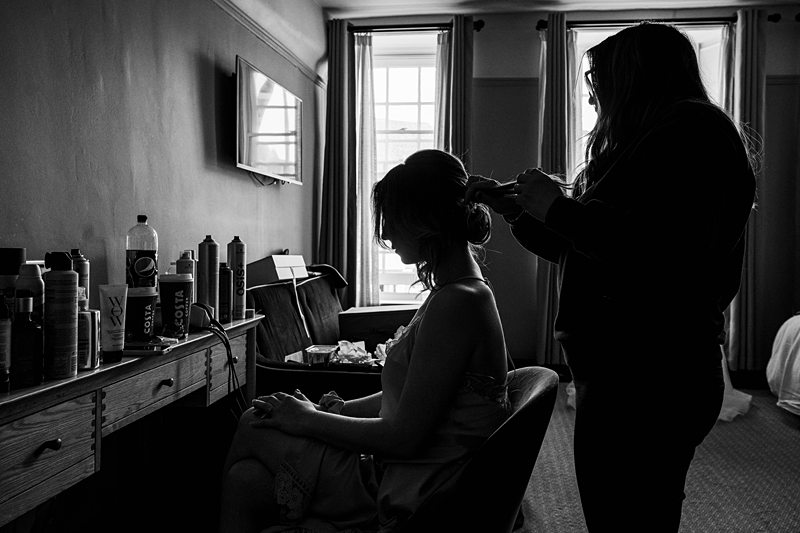




The Role of a Wedding Planner or Coordinator
Embarking on matrimonial preparations is a delightful endeavour, and enlisting the aid of a wedding planner or coordinator can transform your planning experience. These experts in the nuptial industry are adept at navigating the intricate parts of wedding planning, ensuring that every detail aligns harmoniously with your vision. Not only do they help you plan each phase meticulously, but they also become the pivotal force in materialising your concepts and ensuring the day unfolds without a hitch.
As you plan your special day, you’ll discover that the role of a wedding planner or coordinator is multifaceted, blending the creative with the practical. Your special day is a symphony of moments and details, with various components that require professional finesse. From venue selection to vendor liaisons and from timeline management to on-the-day orchestration, these professionals provide the essential scaffolding for your dream wedding.
- They provide invaluable insights into selecting the perfect venue, catering options, and decorative themes that reflect your personality.
- They offer a vast network of vetted suppliers and vendors, ensuring quality and reliability for every aspect of your wedding.
- They tackle any challenges that arise with grace and efficiency, keeping stress at bay and allowing you to savour every moment of your engagement.
A wedding planner’s keen eye for detail, exceptional organisational skills, and ability to anticipate the couple’s needs add a layer of sophistication to the event. Imagine walking into your celebration knowing every petal, place setting, and protocol is in place just as you envisioned. It’s a seamless transition from dream to reality, expertly guided by a coordinator dedicated to crafting the day you’ve always envisaged. So, if you seek a wedding free from the complexities of logistics, a wedding planner is your ally in orchestrating the magic that will echo through the rest of your lives.
Ensuring Your Wedding Day Runs Smoothly
As you approach the culmination of months of preparation, it’s essential to ensure that every detail of your wedding day is set for a seamless celebration. Crafting a meticulously detailed wedding timeline is paramount, making it one of the key wedding essentials. This chronology serves as the blueprint for the day, providing clarity and order to what can otherwise be a whirlwind of moments.
Utilising a Wedding Day Timeline
Your wedding timeline is a central component, documenting every part of your day from the early morning preparations to the final farewell. It’s a tool that not only you but also your vendors, wedding party, and guests will refer to throughout the day. This timeline encapsulates the essence of your meticulous planning leading up to your wedding, ensuring that each segment melts into the next with precision and grace.
- Start with the pre-ceremony activities, allocating time for dressing and photographs.
- Detail the procession order and the timing of the ceremony itself.
- Follow with the reception itinerary, from the grand entrance to the last dance.
By outlining these important parts of any wedding, you create a roadmap that guides all involved through the day’s events.
Delegating Roles and Responsibilities
Delegate effectively, empowering your wedding party with roles and responsibilities. This ensures that everyone knows their tasks well in advance and is ready to assist in creating your perfect day.
- Assign a point person for vendor communications.
- Designate a coordinator for the bridal party, assisting with timing and photo coordination.
- Appoint someone to manage transportation logistics, ensuring guests arrive and depart with ease.
By sharing the load, you will be free to immerse yourself in the romance and celebration of your wedding day, surrounded by loved ones who are all pulling together to make your day as perfect as you have always imagined.
Creating Lasting Memories with Professional Photography
Imagine, years from now, you’re flipping through your wedding album, reliving the heartfelt emotions and laughter, the shared looks and the dance moves that defined your day. This is why choosing a wedding photographer is more than just a tick on your to-do list; it’s an investment in memories. With professional photography, your special moments are captured with clarity and creativity, immortalising the joy and the ambience of your once-in-a-lifetime celebration.
While your wedding day may fly by in a whirlwind of excitement, your wedding photographs will stand the test of time. It’s the skill of a professional that turns fleeting glances into lasting memories, ensuring the spirit and splendour of your day are never forgotten. Each image a story in its own right, snapping those key moments and the myriad of emotions behind them.
- Selecting a photographer whose style resonates with your vision. Have a good look through their portfolio
- Discussing your expectations and desired outcomes with your chosen professional.
- Ensuring your photographer is briefed about the timeline and crucial events of the day.
- Ask them lots of questions to get a feel of how they work (Click here to read what questions to ask a wedding photographer!)
- Check out their prices & Packages. Most photographers have a number of different packages to choose from, to suit many budgets.
Opting for high-quality professional photography allows you to relax and be present in your celebrations, secure in the knowledge that every laugh, tear, and dance will be captured for you to cherish. The visual narrative of your wedding told through these images will be a source of joy and reminiscence for decades to come. So, invest in a wedding photographer who will turn today’s happiness into tomorrow’s treasures.
Conclusion
Your journey towards the day you say “I do” is much more than a sequence of tasks; it is the realisation of a lifelong dream. With our ultimate guide to planning a wedding at your fingertips, you have been adeptly guided through every chapter of assembling your dream wedding. From selecting the venue to choosing the perfect gown, and from crafting intricate personal touches to immortalising the day with professional photography, every facet has warranted careful consideration to promise a ceremony that truly embodies your personal narrative.
Thanks to this comprehensive planning guide, the intricate tapestry of your best wedding is intricately woven with threads of careful planning and exquisite details, ensuring that your special day is not only memorable but also a reflection of your unique bond. What lies ahead is a full wedding experience that marries tradition with personal style, a celebration that you, your partner, and guests will cherish for years to come.
The foundation of cooperation, augmented by the extensive roadmap provided by this guide to planning a wedding, positions you to enjoy the festivities knowing that your due diligence has paved the way for a seamless, joyous occasion. Take a moment to appreciate the journey thus far and prepare to embark on the incredible voyage that is married life, with the knowledge that your wedding day has been planned to its finest detail, destined to be nothing short of spectacular.






FAQ
How much time should I allocate for planning my wedding?
It’s generally advisable to start planning your wedding at least a year in advance. This timeline can help accommodate the multitude of tasks and decisions that need to be made without excessive stress.
What’s the best way to organise my wedding planning?
Organisation is key to a seamless planning process. Use a detailed checklist, maintain a binder or digital folder for all your documents, and consider using wedding planning apps or software to keep everything in check.
Should I involve my significant other in the wedding planning process?
Absolutely! Including your partner ensures that the wedding reflects the tastes and personalities of both of you. It’s also a wonderful opportunity to make joint decisions and share the responsibilities.
How do I create a realistic wedding budget?
Start by calculating your total available funds, including savings and any contributions from family. Then itemise your expected expenses to understand where your money will go. Remember to leave a cushion for unforeseen costs too.
What are the key factors to consider when choosing a wedding venue?
Consider your guest list size, the location’s convenience, whether the venue’s style matches your wedding theme, and if it aligns with your budget. Also, inquire about accommodations and whether there are any restrictions or required vendors.
How can we create a shared vision for our wedding?
Discuss with your partner what’s important to each of you for the wedding day. Is there a specific theme, atmosphere, or key elements like music or food that you both agree are non-negotiable? From there, build upon that foundation to create your combined vision.
When should I start shopping for my wedding dress?
Begin shopping for your wedding dress around 9 to 12 months before your wedding date. This allows enough time for fittings and alterations. If you’re considering a custom gown, allow even more time.
How do I include my wedding party in choosing their attire?
Discuss the wedding theme and your vision for the attire with your wedding party early on. Take into consideration their body types, budgets, and comfort levels. Shopping together can make for a fun and inclusive experience.
What should be included in my wedding planning checklist?
Your checklist should outline every task from setting a budget, booking vendors, to final fitting appointments for your attire. Prioritise tasks based on the timeline leading up to the wedding and include any deadlines.
How do I effectively communicate with my wedding vendors?
Build a collaborative relationship with your vendors by maintaining clear, consistent communication. Share your expectations and listen to their suggestions. Make sure to get all agreements in writing.
What personal touches can I add to my wedding day?
Personal touches can range from handwritten vows, customised centrepieces that tell your story, to family recipes included in the menu. These details can make your wedding feel unique and special.
How important is wedding stationery and when should I send out invitations?
Wedding stationery is crucial for setting the tone of your wedding. Send out save-the-date cards 6 to 12 months prior and follow with invitations around 6 to 8 weeks before the wedding day.
Is hiring a wedding planner or coordinator worth it?
If you’re feeling overwhelmed or simply want professional guidance to ensure your day goes off without a hitch, a wedding planner can be invaluable. They bring expertise and can often save you time and stress in the long run.
How do I create a wedding day timeline?
Work backwards from your wedding’s end time to schedule each segment of the day, allotting time for preparation, ceremonies, receptions, and anything else you’ve planned. A precise timeline ensures a smooth flow of events.
Why should I hire a professional wedding photographer?
A professional wedding photographer has the skill to capture high-quality, emotional, and candid moments that you’ll enjoy for years to come. They’re adept at dealing with lighting, framing, and directing to ensure your memories are beautifully preserved.

